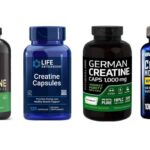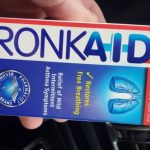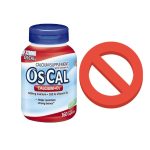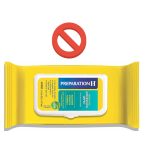Why Was MuscleTech Gakic Discontinued?
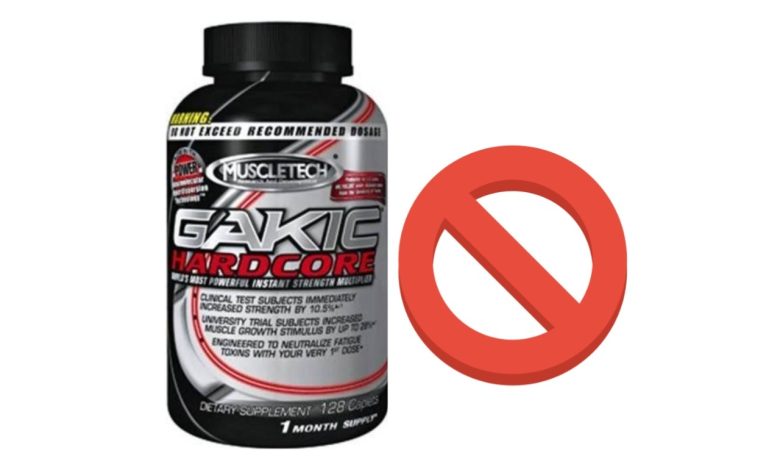
Gakic was a dietary supplement marketed as a pre-workout supplement that was developed and manufactured by the Canadian company, MuscleTech Research and Development, Inc. It was first introduced in 2005 and gained popularity as a supplement that could improve athletic performance.
Gakic contained a proprietary blend of several ingredients, including glycine, L-arginine, and alpha-ketoisocaproate. The idea behind Gakic was that it would increase the body’s ability to buffer lactic acid, a byproduct of intense exercise that can cause fatigue and muscle pain. The product was marketed as a supplement that could enhance athletic performance by reducing fatigue and improving endurance.
MuscleTech claimed that Gakic was backed by scientific research and conducted several studies to support its claims. One study, published in the Journal of Strength and Conditioning Research in 2008, found that Gakic improved the performance of weightlifters during a high-intensity training session. However, other studies had mixed results, and some experts raised concerns about the safety of long-term use of the supplement.
Despite the mixed evidence for its efficacy and concerns about its safety, Gakic remained on the market for over a decade.
Is MuscleTech Gakic being discontinued?
MuscleTech discontinued Gakic in 2016. The reasons behind the discontinuation are not entirely clear, but it is likely due to a lack of scientific evidence supporting its claims and concerns about its safety.
While some studies showed the potential benefits of the ingredients in Gakic, the overall evidence for the efficacy of the product was mixed. Additionally, some experts raised concerns about potential side effects, including gastrointestinal problems and the risk of kidney damage from long-term use.
In the absence of clear scientific evidence supporting its benefits and concerns about its safety, MuscleTech decided to discontinue Gakic. It is important to note that the U.S. Food and Drug Administration (FDA) does not regulate dietary supplements in the same way it does prescription drugs, which can make it difficult for consumers to know what they are taking and whether it is safe and effective.
Side Effects of Gakic
While some studies suggested that Gakic could provide benefits for athletes, there were also potential side effects associated with its use.
Some of the reported side effects of Gakic included gastrointestinal problems, such as nausea, diarrhea, and stomach cramps. These side effects were likely due to the high doses of amino acids and other ingredients in the supplement.
There were also concerns about the long-term safety of Gakic, particularly regarding its impact on kidney function. Some experts suggested that the high doses of amino acids in the supplement could put a strain on the kidneys, potentially leading to kidney damage over time.
While Gakic was generally considered safe when taken in recommended doses, there were also reports of more serious side effects, such as chest pain and irregular heartbeat. These side effects were relatively rare but could be serious, particularly for individuals with underlying health conditions.
It is worth noting that the U.S. Food and Drug Administration (FDA) does not regulate dietary supplements in the same way it does prescription drugs, which can make it difficult for consumers to know what they are taking and whether it is safe and effective. As with any supplement, it is important to talk to a healthcare provider before taking Gakic or any other dietary supplement.
Gakic Supplement Substitutes
If you are looking for alternatives to Gakic, there are several other pre-workout supplements available that may provide similar benefits for athletic performance. Here are a few options to consider:
1. Creatine: Creatine is a naturally occurring compound that is found in meat and fish. It is also available in supplement form and has been shown to increase muscle strength and improve exercise performance. Creatine works by increasing the body’s production of adenosine triphosphate (ATP), which is the primary source of energy for muscle contractions.
2. Beta-alanine: Beta-alanine is an amino acid that is naturally produced by the body. It is also available in supplement form and has been shown to improve athletic performance by increasing muscle endurance and reducing fatigue. Beta-alanine works by increasing the body’s production of carnosine, which helps to buffer lactic acid and delay the onset of fatigue during high-intensity exercise.
3. Citrulline malate: Citrulline malate is a combination of the amino acid citrulline and malic acid. It has been shown to improve athletic performance by increasing blood flow to the muscles and reducing fatigue. Citrulline malate works by increasing the body’s production of nitric oxide, which helps to relax blood vessels and improve circulation.
4. Nitrate-rich foods: Some foods, such as beetroot, spinach, and arugula, are naturally high in nitrates, which can improve athletic performance by increasing blood flow to the muscles and reducing fatigue. Nitrate-rich foods work by increasing the body’s production of nitric oxide, which helps to relax blood vessels and improve circulation.
As with any supplement or dietary change, it is important to talk to a healthcare provider before trying any of these alternatives to Gakic. They can help you determine the best approach for your individual needs and health status.

